Moscow
How will Vladimir Putin’s hold on power end? Will he be quietly retired by Kremlin rivals angry at a national humiliation, like Nikita Khrushchev after the debacle of the Cuban missile crisis? Deposed by KGB men even more hawkish than himself, like Mikhail Gorbachev? Overthrown by a popular revolt, like Tsar Nicholas II? Or will he die in his bed still the undisputed tyrant of a police state, like Joseph Stalin?
Prediction has become a risky business in Russia ever since Putin threw his usual calculation and caution to the wind and launched a rash and fundamentally unwinnable war against Ukraine. But it is nonetheless worth examining where Putin’s vulnerabilities lie – and how unfolding economic collapse, international isolation and the likely failure to achieve his goal of a quick decapitation of the Ukrainian state could undermine his once-unassailable position.
Some in the West seem to believe that Putin might be deposed by top generals who realise his plans are doomed – an Operation Valkyrie scenario, like Claus von Stauffenberg’s failed 1944 plot to assassinate Hitler. Last week Foreign Office minister James Cleverly claimed that Russian military chiefs know that Putin is increasingly ‘isolated’ and ‘illogical’ as he tries to ‘recreate a Russian empire in his mind… they are in a position to stop this and we call on them to do so’.
Putting aside the dubious ethics of a British minister calling for a military coup in a foreign country, there’s little public evidence to back up the Valkyrie scenario. Clearly, the steady stream of very detailed operational information on Putin’s war plans that has been publicly broadcast in Washington and London has come from a highly placed spy or spies close to the Russian military. Indeed a senior UK intelligence source confirms that part of the US and UK strategy in trumpeting their insider information on the Kremlin’s battle plans was ‘to show Putin that he has a leaky ship… and leaky ships tend to sink’. But a discontented individual – or even several – high up in Putin’s military machine does not amount to a plausible threat to his power.
What about sanctions? Boris Johnson has promised that the latest package of unprecedentedly savage economic measures will ‘squeeze Russia from the global economy, piece by piece’. Nonetheless it is far from clear just how sanctions will change Putin’s mind, much less topple him from power. Sanctions are the modern world’s equivalent of a medieval siege, intended to starve the enemy into submission. The severity of the latest measures – which have cut the Russian Central Bank off from most of its $630 billion foreign currency reserves and disconnected 80 per cent of Russia’s banking sector from the US financial system – have shown impressive resolve and unity among the international community. They have also successfully sent the Russian rouble and stock market into free fall. Even former Putin sympathisers Germany and Hungary have come on board with sanctions that put Russia on a par with pariah states such as Syria, North Korea and Iran.
But that’s the problem. All those rogue nations, some of them sanctioned for decades, show little sign of falling apart or moderating their aggressive behaviour. On the contrary, recent history has shown that sanctions tend to entrench dictatorships, not shatter them. As former cabinet minister David Davis puts it, sanctions ‘are no longer a deterrent. They are a punishment’.
Alongside banking bans, the British government has made much of personal sanctions against Putin, his foreign minister Sergei Lavrov and various so-called oligarchs who have parked their money in Londongrad.
But is Putin’s personal money – or that of Russian billionaires – really his weak point? Today the very term ‘oligarchs’ is a misnomer. Back in the 1990s, the Kremlin’s grey cardinal Boris Berezovsky was able to claim that seven wealthy businessmen – Russia’s original oligarchs – ran Boris Yeltsin’s impoverished and weak Kremlin. Yet when Putin came to power the first thing he did was to take down oligarchs like Berezovsky (who went into exile) and jail Russia’s richest man, Mikhail Khodorkovsky, in a Siberian prison camp for a decade. Those billionaires who remained free and in possession of their wealth did so solely at Putin’s pleasure.
Since that purge, Russia does indeed have a new oligarchy, and a very wealthy one at that. They are not, however, businessmen, but bureaucrats. Many of them are personal friends of Putin’s from his KGB days and are collectively known as siloviki, or ‘men of power’, because of the millions of military and security personnel they command. And most of Putin’s inner circle have been under personal sanctions since Russia’s annexation of Crimea in 2014. Indeed, in the upper reaches of Russia’s government to be sanctioned is seen as a badge of loyalty.
Putin may be, in the words of his spokesman Dmitry Peskov, ‘indifferent’ to sanctions. But for millions of Russians – especially members of the middle class who have become used to foreign holidays, cars, clothes and gadgets – they spell disaster. In the wake of the rouble’s collapse by 30 per cent on Monday and a ban by the US and EU on flights from Russia, prices on Turkish Airlines flights to Istanbul – the only European airport still available – spiked to 1,700 euros for a one-way ticket.
Will a sanctions-driven economic downturn – predicted to push Russian GDP down by at least 5 per cent this year – translate into mass discontent that could shake Putin’s throne? It’s happened before. In the run up to the February revolution of 1917, years of war and economic chaos eventually led to a collapse of food supplies in Petrograd. In the twilight years of the Soviet Union, basic staples dwindled and disappeared. But the key word is ‘years’. Russians are famously stoical. Both Yeltsin and Putin weathered rouble collapses in 1992, 1998, 2008 and most recently in 2014, when the currency lost half its value in the wake of post-Crimea sanctions. In response, the Kremlin banned food imports from the EU – forcing Russia to become agriculturally self-sufficient. That radical piece of economic autarchy means staple foods won’t be affected by the latest collapse of the rouble, and consequently Russia’s poor majority will be somewhat cushioned from the economic shock.
National humiliation on the battlefield is another matter. Russian plans leaked to the West in the run up to the assault suggested that Putin expected a quick victory, and was told that millions of Ukrainians would welcome their invaders with open arms. Neither has come true. Putin’s frustration was evident in an angry address where he announced that the country’s nuclear forces were to be placed on a ‘special level of preparedness’ – whatever that might mean – and warned the West not to support Ukraine with weapons.
Yet that is precisely what the West has done. Two weeks ago British flights carrying anti-tank weapons to Ukraine tactfully flew around German airspace. Now, Germany has sent missiles of its own. Ukrainian social networks are full of footage of destroyed Russian tanks, missile launchers and trucks. And in a telling echo of the 1980s, when American-supplied Stinger missiles allowed the mujaheddin of Afghanistan to deny the Soviets air superiority, Stingers are now being supplied to Ukraine.
Putin’s superior firepower will likely in time crush the Ukrainian army. But capturing and occupying large swathes of territory will be far bloodier than expected, and decapitating the government and installing a puppet regime looks unfeasible in the face of Volodymyr Zelensky’s support soaring past 90 per cent. Tellingly, Russian television began showing actual battlefield footage from Ukraine only five days into the offensive, with no casualty numbers. In the 1980s, military transports full of ‘Cargo 200’, code for dead soldiers, coming back from Afghanistan seriously undermined the legitimacy of the Soviet leadership and shattered the illusion of both the USSR’s invincibility and its permanence.
Could history repeat itself with Ukraine? Putin’s propaganda machine is sophisticated and effective. So is his security apparatus, which flooded the streets of Moscow and St Petersburg with paramilitary police in the days after the invasion. It was an overwhelming show of force that successfully deterred almost all but the most determined potential demonstrators.
Yet in the age of social media, bad news from the battlefield is harder to hide. If Putin’s hoped-for short, victorious war turns into a bloody quagmire, some Russia watchers have speculated that he may be eased out in a palace coup. Significantly, the man singled out for public humiliation by Putin in his bizarre televised security council meeting was Sergei Naryshkin, head of Russia’s Foreign Intelligence Service. Naryshkin is uniquely well informed about the reality on the ground in Ukraine. It seems likely that he pushed back against the idea that a full invasion would be a cakewalk – and was publicly punished with a contemptuous dressing-down from the boss.
Foreign minister Sergei Lavrov, too, looked as though he had been licking nettles as he squirmed to avoid actually saying that he wholeheartedly supported the operation. Prime Minister Mikhail Mishustin’s voice was funereal as he obliquely warned of the economic consequences.
But even if there are splits in the Kremlin, they are broadly between the men with guns and the men who look after the money. In a showdown between armed hawks and impoverished doves, the former will always win. And more importantly, there’s no possible challenger. Putin’s regime, like that of Turkey’s Recep Tayyip Erdogan, is a personal autocracy based on nothing but loyalty to the boss of all bosses. Even if failure in Ukraine and economic isolation make Putin a liability to his country, the lack of any plausible successor makes a regicidal plot unlikely.
Will Putin’s war in Ukraine spell the end of his regime? Eventually, probably yes. But only in the sense that the Russo-Japanese war was the beginning of the end of Tsar Nicholas II’s rule 13 years later, or Brezhnev’s Afghanistan invasion the end of the USSR 12 years afterwards. Putin’s mask of invincibility has cracked. The endgame, though, will be neither quick nor painless.
Got something to add? Join the discussion and comment below.
Get 10 issues for just $10
Subscribe to The Spectator Australia today for the next 10 magazine issues, plus full online access, for just $10.
You might disagree with half of it, but you’ll enjoy reading all of it. Try your first month for free, then just $2 a week for the remainder of your first year.

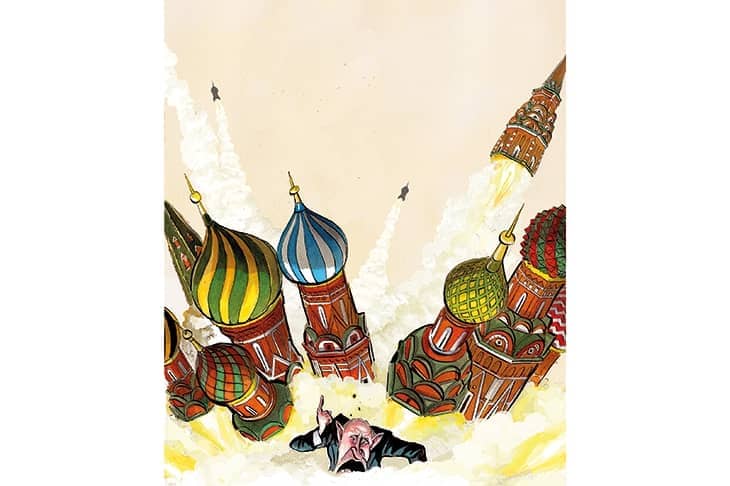
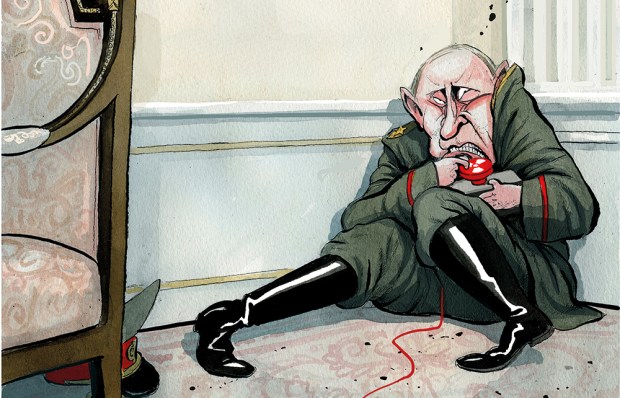
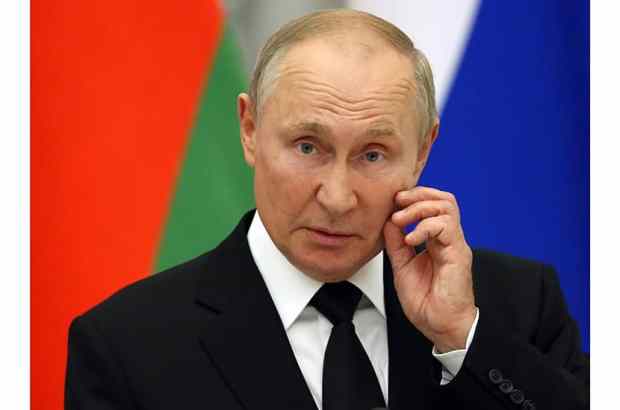
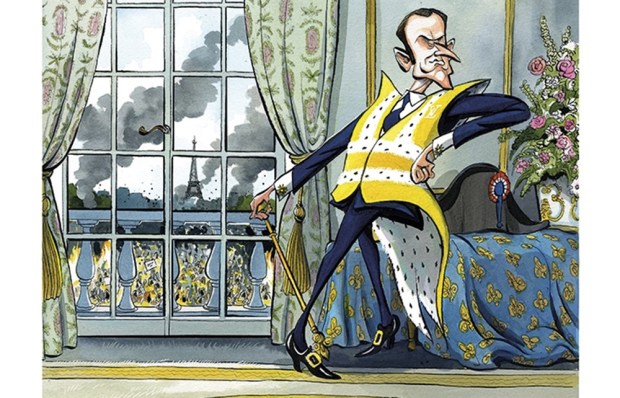
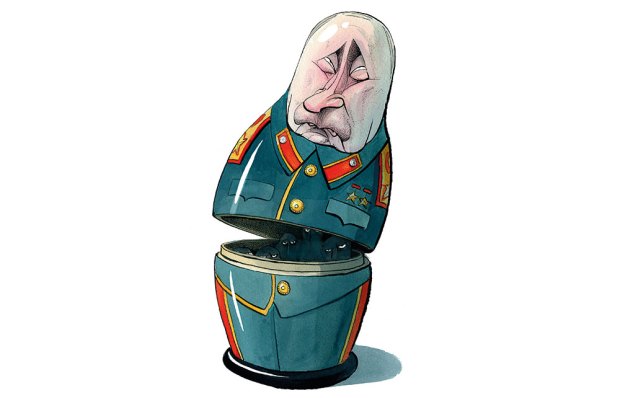
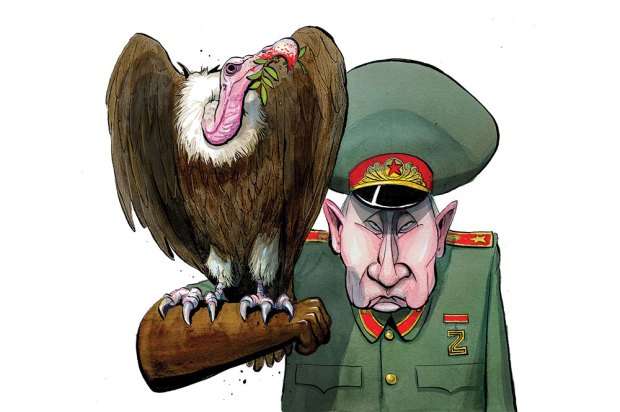
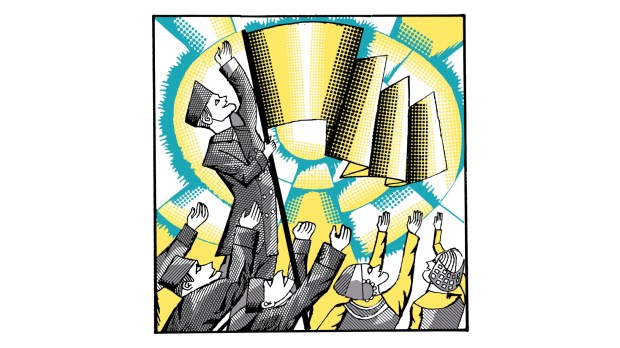






Comments
Don't miss out
Join the conversation with other Spectator Australia readers. Subscribe to leave a comment.
SUBSCRIBEAlready a subscriber? Log in